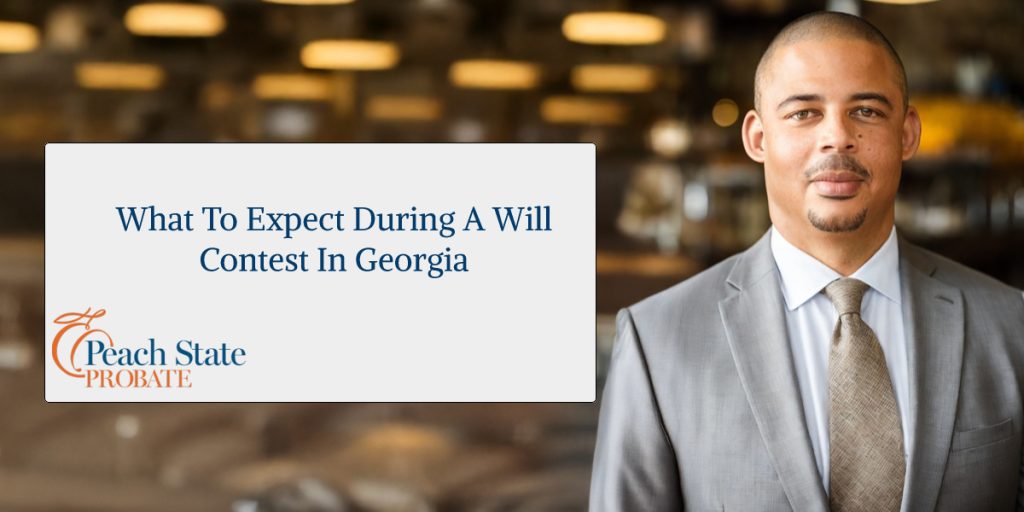## Understanding Will and Trust Contests in Georgia
Navigating the complexities of will and trust contests can be daunting for those involved, especially in the state of Georgia. These legal battles typically arise when an individual challenges the validity of a will or trust, often citing reasons such as lack of capacity, undue influence, or improper execution. Understanding these contests is crucial for anyone who may be faced with the possibility of disputing a loved one’s estate distribution.
In Georgia, will contests begin in the probate court, where the validity of the document becomes the focal point. Depending on specific circumstances, these contests can involve intricate legal standards, such as proving the intent of the deceased person and ensuring that the will complies with state law. Given Georgia’s unique legal framework regarding estates, those involved will benefit significantly from understanding this process before initiating a contest.
Familiarizing oneself with will and trust contests not only prepares individuals for possible legal action but also encourages early resolution of disputes through negotiation or mediation. Being aware of the common grounds for contesting a will can position individuals and their legal counsel to take proactive steps, minimizing stress and potential financial burdens in what can be a prolonged legal affair.
## The Significance of Will and Trust Contests
The topic of will and trust contests holds substantial importance for anyone participating in or affected by estate settlements. When a will or trust is disputed, it can lead to not just financial implications but emotional strife among family members and beneficiaries. Understanding the reasons behind such contests is vital to both protect one’s interests and maintain family harmony, if possible.
One of the primary reasons will and trust contests occur is the fluctuating emotional dynamics that can arise after a loved one passes away. Grief can cloud judgment, leading individuals to question the fairness of a recently executed will or trust. As feelings of resentment or misunderstanding arise, the prospect of contesting the provisions can seem like a justified course of action. This emotional backdrop emphasizes the necessity of clarity and communication in estate planning.
Moreover, as laws surrounding estates, trusts, and wills evolve, understanding them becomes even more crucial. A comprehensive exploration of will and trust contests equips individuals with the knowledge to challenge or defend against legal assertions effectively. Knowledge of current statutes and precedents allows individuals to navigate this critical aspect of estate law, enabling informed decision-making.
## The Legal Framework Surrounding Will Contests in Georgia
The legal framework governing will and trust contests in Georgia is both intricate and stringent. The probate code outlines specific criteria under which contests can be initiated, focusing on the authenticity and legitimacy of the contested documents. Understanding this legal context can empower individuals to present compelling arguments whether they are contesting or defending a will or trust.
In Georgia, the law requires that to contest a will, the petitioner must typically prove specific grounds for the challenge. Common grounds include lack of testamentary capacity, which questions whether the deceased understood their actions when creating the will, and undue influence, which asserts that someone manipulated the decedent into modifying their will or trust. Fulfilling the burden of proof lies primarily on the contesting party, and this makes legal strategies and proper documentation paramount in building a case.
Furthermore, Georgia courts follow certain procedural rules that must be adhered to when initiating a will contest. Deadlines, notice requirements, and proper filing methods all play a crucial role in how a case is viewed by the court. Because each contest involves unique circumstances, retaining legal counsel familiar with Georgia’s probate code is indispensable, as this expertise can significantly influence the outcomes of these legal proceedings.
## Real-Life Scenarios of Will and Trust Contests
Real-world examples of will and trust contests help illuminate the various reasons individuals may decide to challenge an estate document. Each case not only offers insights into the legal issues at play but also highlights the emotional narratives that can impact the process. Understanding these real-life instances can better prepare individuals for their unique situations.
One illustrative case involved a sibling contesting a will that significantly favored a distant relative. The sibling argued that the decedent lacked the mental capacity to make such decisions, supported by testimony from healthcare professionals who had treated the deceased prior to their passing. This case underscores the importance of demonstrating clear evidence when alleging lack of capacity, as well as the emotional bonds that can complicate family dynamics during such contests.
Another example features a situation where a beneficiary alleged that undue influence had been exerted by a caregiver over the decedent, leading to changes in the trust. The caregiver had gained access to the deceased, often isolating them from family members. This case illustrates the struggles often faced in proving undue influence, particularly when the evidence is more circumstantial than direct. Overall, these examples serve as real-world insights, highlighting the varying contexts in which will and trust disputes occur.
## Proactive Steps to Consider in Will Contests
Navigating a will contest requires an understanding of potential actions one can take to strengthen their position in court. Whether one is contesting a will or defending against a challenge, proactive steps may significantly impact the outcome. Preparation and strategic planning are critical components of ensuring one’s interests are well represented during legal proceedings.
Initially, gathering and preserving relevant documents related to the will or trust is crucial. These documents include not only the contested will but also any correspondence, healthcare records, and other evidence that might speak to the decedent’s state of mind or circumstances under which the will was executed. Effective documentation establishes a more robust foundation for arguments in court regarding both testamentary capacity and undue influence.
Involving a legal professional early in the process can also be a significant advantage. Skilled attorneys can provide guidance on the best strategies to adopt based on particular circumstances, ensuring that all procedural requirements and deadlines are met. Additionally, legal counsel can assist in negotiations that may lead to an out-of-court settlement, reducing the stress of a trial and the potential fallout from prolonged family disputes.
## Common Pitfalls to Avoid in Will Contests
While participants in will and trust contests strive for a successful resolution, several common pitfalls can arise and jeopardize their position. Being aware of these potential missteps can help individuals navigate this challenging landscape more effectively. By understanding what to avoid, parties can better protect their interests during legal proceedings.
One frequent mistake is failing to adhere to procedural rules established by the Georgia probate code. Missing filing deadlines or neglecting to provide the necessary notice to interested parties can undermine a well-founded contest. Consequently, understanding the timeline and requirements associated with a will contest can prevent unnecessary dismissals or unfavorable judgments.
Another pitfall involves underestimating the complexity of proving undue influence or lack of capacity. Parties often believe that emotional appeals or anecdotal evidence will suffice; however, these positions usually require substantial, objective evidence to hold up in court. This reality underscores the necessity of thorough preparation and gathering credible testimony from medical professionals or other witnesses who can support a case.
Finally, allowing emotions to dictate decisions can lead to rash actions that complicate matters further. Highlights of grievances may cloud judgment during a legal contest, so it is critical for individuals to maintain a level-headed approach and focus on strategic planning. Recognizing that will contests can create prolonged conflict is essential in making informed decisions.
## When to Seek Legal Counsel
Determining the appropriate time to consult with a legal professional in matters of will and trust contests can be pivotal to one’s success. While individuals may feel confident in their ability to advocate for their interests, the complexities of estate law often necessitate expert guidance to ensure a comprehensive approach to challenges ahead. Understanding when to seek legal assistance can help individuals navigate this process more smoothly.
Individuals should consider enlisting legal counsel as soon as a potential dispute arises regarding a will or trust. Whether one is on the side of contesting or defending a will, early intervention can provide a clear understanding of the rights and responsibilities involved. Addressing disputes at the outset can often lead to resolutions that avoid the need for formal legal action, ultimately saving time and money.
When facing specific legal challenges, understanding the precise grounds for contesting a will or trust can also signal the need for an attorney. For example, if there are indications of undue influence or lack of capacity, legal representation can assist in organizing evidence and constructing a viable case. Engaging an attorney might be equally essential when responding to a challenge to a will, as knowing how best to defend it is crucial to successfully protecting one’s rights.
Additionally, as will contests can involve significant financial stakes, consulting with an attorney can alleviate anxiety and provide strategic insight into the unpredictable nature of litigation. Legal professionals serve as advocates who can navigate the complexities of probate court, offering peace of mind and a higher likelihood of a favorable outcome.
## The Advantages of Professional Legal Representation
Engaging legal representation during a will contest brings multiple advantages that can dramatically influence the outcome of a desire to contest or defend an estate document. Understanding these benefits helps individuals appreciate the value of involving seasoned professionals in complex matters surrounding wills and trusts.
Professional attorneys possess an in-depth understanding of applicable state laws and procedures, which is crucial when presenting a case in court. Their knowledge provides a significant edge in constructing compelling arguments based on legal precedents and documented evidence. Having this level of insight allows clients to better navigate the intricacies of the legal system, effectively leveraging their positions in a contest.
Additionally, experienced legal professionals often have established relationships with the local probate courts, facilitating smoother interactions. An attorney familiar with the intricacies of a specific jurisdiction can maximize the potential for success by knowing what procedural nuances may arise. This familiarity brings assurance and confidence to clients who may feel overwhelmed by the process.
Moreover, a legal representative can serve as an objective party, providing clarity in emotionally charged situations. Distrust and conflict among family members can cloud judgment, but professional legal counsel can help dispassionately assess the situation and guide clients toward rational choices. Employing such guidance is invaluable and can lead to better outcomes for everyone involved.
## How Peach State Probate Supports Clients in Will and Trust Contests
Peach State Probate stands out as a premier choice for individuals navigating will and trust contests in Georgia. With a strong focus on providing personalized services, the firm understands the complexities surrounding these types of cases and offers clients the guidance needed to achieve their goals. This level of care and understanding distinguishes Peach State Probate as a top-tier legal resource.
The firm’s experienced legal team specializes in probate, wills, and estate planning—allowing them to approach each case with a comprehensive and informed perspective. By ensuring clients have access to informed legal counsel, Peach State Probate streamlines the often-demanding process of will contests, emphasizing clarity and open communication at every step of the journey. This client-focused approach fosters trust and encourages collaboration between the legal team and the individuals involved.
Moreover, Peach State Probate recognizes that no two cases are alike. Their tailored strategies ensure each client receives a personalized experience, addressing unique circumstances and concerns. Whether negotiating settlements or advocating in court, the firm’s commitment to diligent representation guarantees that clients feel supported and understood throughout their legal proceedings.
## Frequently Asked Questions About Will and Trust Contests




